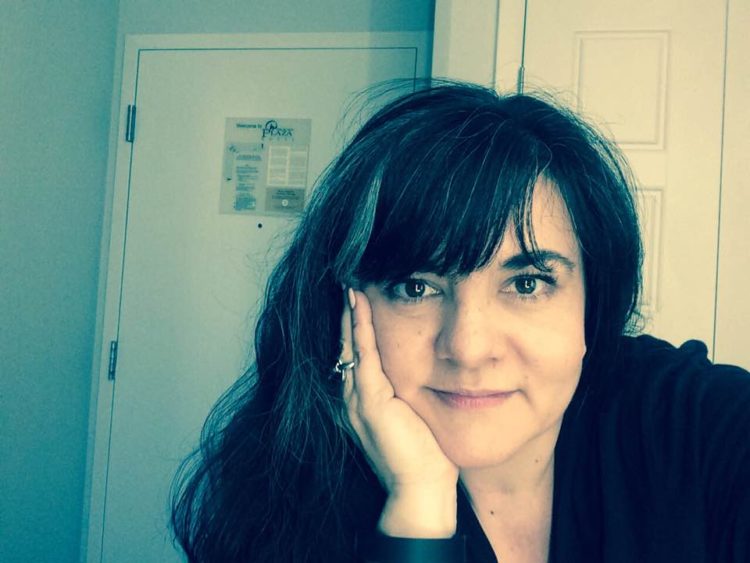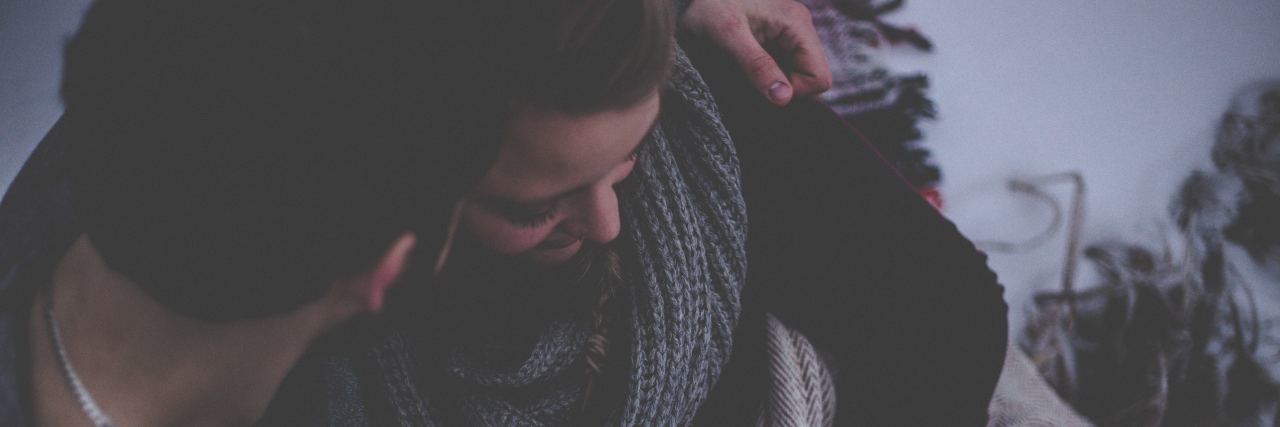“Touch me, touch me, I wanna feel your body, you body next to miiiine.” That’s me singing an old 80s tune in the shower while vigorously rubbing with a loofah.
OK, that’s not exactly how I wanted to start this post, but each time I think about the word touch, it puts me in a good mood. And this old song pops up.
Now let’s come back to the topic: the art of touch and how it can be a powerful tool against anxiety. When I had severe panic attacks, especially at night, the only thing that would help me get through was holding my husband’s hand. I would fall asleep holding his hand; I would wake up in the middle of the night and reach for it or just slide until a part of my body touched his. We are not a super cuddly couple in general and we like our space when we sleep. But around that time, I absolutely needed to be touched and “anchored” to something real.
When panic attacks happened during the day when I was at work or running errands, I would actually massage my arms, shoulders or my thighs to help relax. And it worked. Not as well as holding my husband’s hand, but that’s the best I had under the circumstances (I could hardly ask my colleague if I could hold her hand for a few minutes …). I didn’t understand at the time how it all worked, I just knew my anxiety decreased when I did it.

So, the lost art of touch …
We live today in a society that has become completely out of touch (pun intended) with ourselves, our body and the fact we are animal beings. The reasons are complex and that’s not a discussion for today. The result is we have less physical interactions with other humans than ever before. We hug, yes, but we rarely actually touch other people’s skin. And why is that sad? Because there is a lot going on with skin-to-skin. What’s the first thing that happens — or should happen — when a baby’s born? It’s skin-to-skin time between the parent and child. It’s a time of intense connection and deep bonding. They feel each other, smell each other, experience the warmth of each other.
In the early years, physical contact remains a primary mode of communication. It’s an essential part of the relationship the child builds with their parents or guardians, extended family and early childhood friends. Many studies have shown babies and toddlers who lack physical contact experience a wide array of developmental issues both physical and mental.
As the child gets older, they meet strangers and people they’re not close with. Social conventions — and yes, our concern for safety — then take precedence over the more animal sense of touch. Eventually, the child becomes an adult and does not touch anyone anymore. But the need for touch persists, and remains unsatisfied. So we find alternatives. Heck, cuddle cafés are even a thing now. We become touch-starved.
So, why are we craving touch?
Here’s what happens when we touch someone, or when we are touched. Our skin is an extremely sensitive organ; it has billions of receptors that tell us if something is hot or cold, wet or dry, pleasant or painful. Touch and gentle pressure also release a very important hormone: oxytocin. Oxytocin is sometimes called the “love hormone.” It’s primarily involved in childbirth by triggering uterine contractions and lactation. But we now also know it triggers a wide variety of physiological reactions in both men and women. In particular, oxytocin is high in periods of attachment, when we create new social relationships. It is also known to reduce stress, promote sleep, and improve social skills and empathy. That’s why when we get a hug, when we pet our favorite 4-legged companion, or when we get a massage, we are immediately more relaxed. The physical action of touch translates into an emotional state of well-being.
Some of us, however, do not like to be touched. There’s a wide variety of reasons for that: hypersensitivity, fear, deep-rooted beliefs are just a few. Here, a weighted blanket, snug clothing, and self-massage may be great alternatives to help decrease anxiety.
Our brain also releases oxytocin when we do a “good deed,” when we help someone or simply when we feel good about doing the right thing. If you want to improve your well-being and reduce your anxiety, try and practice kindness every chance you get. You will make the world a better place and reap all the benefits. Find opportunities to hug someone, even if it’s yourself under the shower. And you don’t have to sing, but it sure makes it better.
P.S. I don’t hold my husband’s hand at night anymore, I think he may be grateful for that. But I do cuddle and hug him for no reason. Often. Just because I like it. And it feels wonderful.
You can follow my journey on Bright Life Emma.
Unsplash image by Priscilla de Preez

